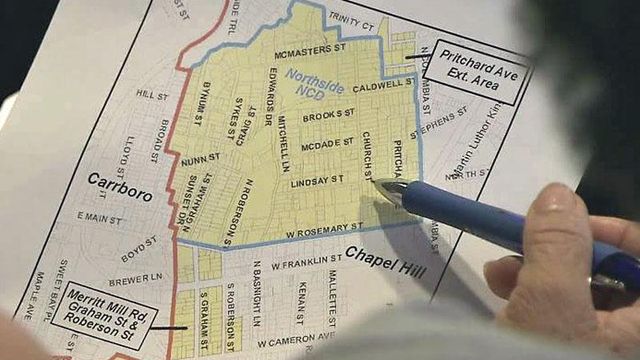Historic Chapel Hill neighborhoods fight to curb development
Longtime residents in two historic Chapel Hill neighborhoods near the University of North Carolina campus are asking the town council to consider a moratorium on building projects. At a public hearing on the issue Monday, residents said student housing developments are forcing them out of their homes.
Posted — UpdatedThe Pine Knolls and Northside neighborhoods are historically black neighborhoods where supporters of a moratorium say low and fixed-income families are being pushed out because developers and investors are buying homes and turning them into upgraded rentals for UNC students.
"The families that have been here nursing this community primarily are kicked out. They can't compete," said Ted Parrish, who has lived in the Pine Knolls area for more than 30 years.
The higher-priced student housing is raising rent in the area and driving up property taxes for homeowners, supporters say.
Others say a moratorium would take away residents' ability to build a deck, upgrade home interiors or build additions on existing homes.
"A moratorium will stifle or freeze, we feel, needed property improvements," said David Jackson. "This will only prohibit future and current improvements that will enhance the quality of life for tenants and the Northside community."
Town planning board member Andrea Rohrbacher said that while the town council should strive to preserve the neighborhoods' diversity and promote responsible growth, a moratorium is not the way to do it.
"I felt that a moratorium created a polarization rather than a collaboration environment," Rohrbacher said. "I'd like to see the neighborhood try to solve their problems by working together without the moratorium."
• Credits
Copyright 2024 by Capitol Broadcasting Company. All rights reserved. This material may not be published, broadcast, rewritten or redistributed.





